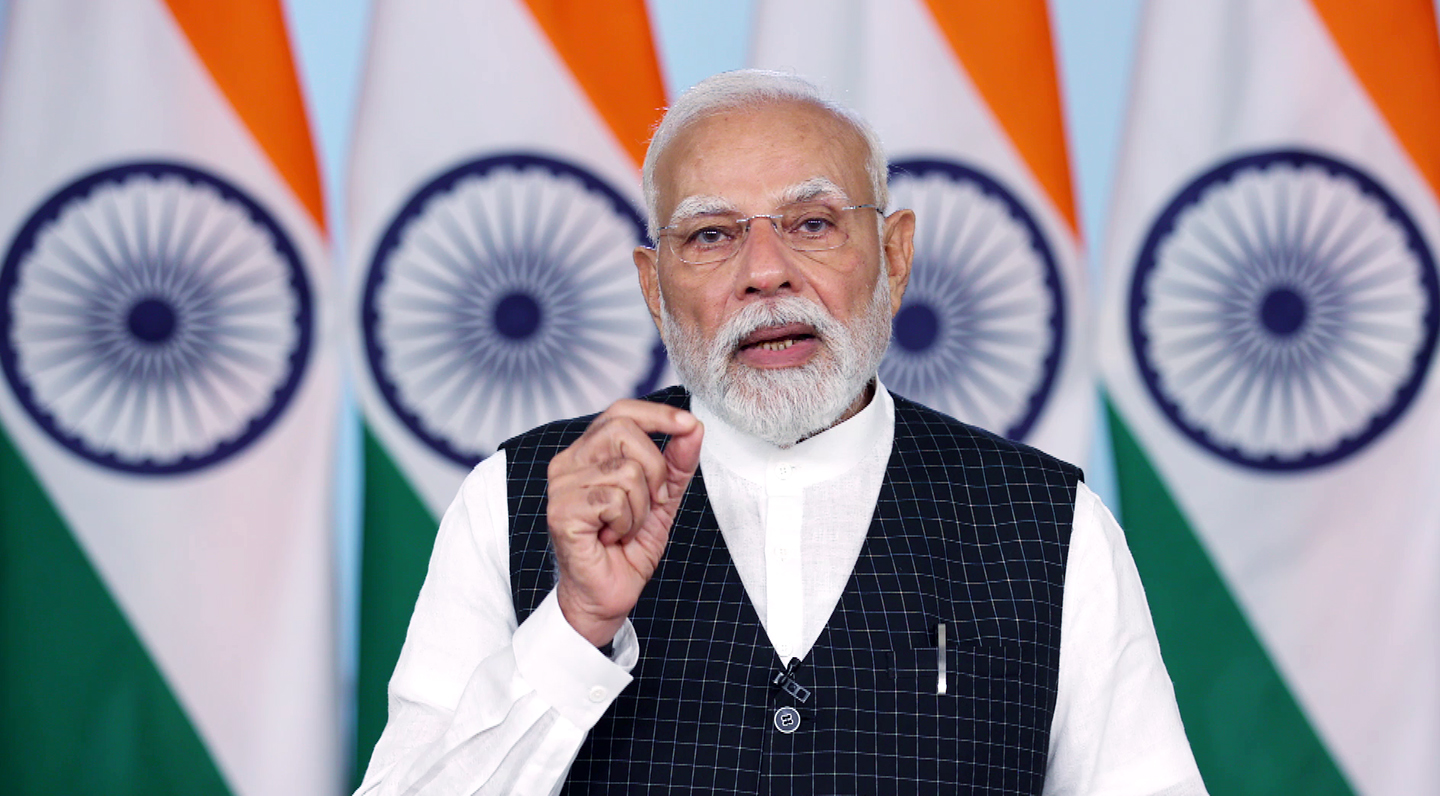Prime Minister Narendra Modi on Saturday addressed the Economic Times World Leaders Forum in New Delhi, underscoring India’s emergence as a global economic powerhouse and outlining an ambitious reform agenda aimed at propelling the nation toward becoming the world’s third-largest economy. Lauding the forum’s timely initiative, PM Modi described it as a “force multiplier” for the next-generation reforms he announced from the Red Fort last week.
Speaking on India’s economic resilience, PM Modi highlighted that India is the fastest-growing major economy globally, with projections indicating it will soon rank as the third-largest. He attributed this growth to a decade of macroeconomic stability, citing a declining fiscal deficit of 4.4 percent despite the challenges of the COVID-19 pandemic, robust foreign exchange reserves, and controlled inflation and interest rates. Indian companies, he noted, are raising record funds from capital markets, with banks stronger than ever and millions of domestic investors pouring funds into markets through Systematic Investment Plans (SIPs).
PM Modi emphasized the tangible outcomes of this economic strength, pointing to recent milestones. In June 2025, the Employees’ Provident Fund Organisation (EPFO) recorded an all-time high of 22 lakh formal jobs added in a single month. Retail inflation has dropped to its lowest since 2017, and foreign exchange reserves have hit a historic peak. India’s solar PV module manufacturing capacity has soared from 2.5 GW in 2014 to 100 GW, while Delhi Airport has joined an elite global group, handling over 100 million passengers annually. Additionally, S&P Global Ratings upgraded India’s credit rating for the first time in nearly two decades, reinforcing global confidence in the country’s economic trajectory.
Reflecting on missed opportunities in the past, PM Modi remarked that previous governments, entangled in vote-bank politics, failed to seize technological and industrial advancements, causing India to lag in sectors like telecommunications. He cited the 2G era as an example of indecision and missed opportunities, noting that India relied on foreign technology for 2G, 3G, and 4G. Since 2014, however, India has shifted gears, developing and deploying its own 5G technology at an unprecedented pace and now advancing toward 6G. PM Modi also highlighted the revival of India’s semiconductor industry, with the first Made-in-India chip set to hit the market by year-end.
The Prime Minister celebrated National Space Day by spotlighting reforms in the space sector. From just 42 missions between 1979 and 2014, India has completed over 60 missions in the last 11 years, with more planned. The recent achievement of space docking capability marks a significant milestone for future missions, including the Gaganyaan mission, which will send Indian astronauts into space. PM Modi emphasized the liberalization of the space sector, transparent spectrum allocation, and a ₹1,000 crore Venture Capital Fund for space startups, noting that the number of space startups has grown from one in 2014 to over 300 today.
Reiterating his commitment to transformative reforms, PM Modi stressed that India’s approach is driven by conviction, not compulsion. He highlighted the recent Monsoon Session of Parliament, where significant reforms were passed despite opposition disruptions. The Jan Vishwas 2.0 initiative decriminalized over 300 minor offences, building on the first edition’s success in decriminalizing 200 offences. The Income Tax law, unchanged for 60 years, has been simplified for easier understanding by taxpayers. Reforms in mining, shipping, and ports, some dating back to colonial times, were also introduced to bolster the blue economy and port-led development. A new National Sports Policy, Khelo Bharat Niti, aims to position India as a host for major international sporting events.
PM Modi announced a major overhaul of the GST framework, set to be completed by Diwali, which will simplify the system and reduce prices. These reforms, he said, will boost manufacturing, increase market demand, create jobs, and enhance both ease of living and ease of doing business.
The Prime Minister underscored that a self-reliant India, or Aatmanirbhar Bharat, is the foundation for a developed India by 2047. He cited India’s response to the COVID-19 pandemic as a testament to its speed, scale, and scope, with the rapid production of testing kits, ventilators, and oxygen plants, alongside the administration of over 220 crore Made-in-India vaccines via the CoWIN platform. In the energy sector, India achieved its 2030 target of generating 50 percent of its power from non-fossil fuels in 2025, five years ahead of schedule.
PM Modi also highlighted India’s export growth, with agricultural exports reaching ₹4 lakh crore last year and electronics exports rising from ₹35,000 crore in six decades to ₹3.25 lakh crore today. Automobile exports have surged from ₹50,000 crore annually to ₹1.2 lakh crore, with India now exporting metro coaches, rail coaches, and electric vehicles to 100 countries, a milestone to be celebrated on August 26.
In research and innovation, PM Modi emphasized the government’s efforts to foster a robust ecosystem. R&D expenditure has doubled since 2014, patent filings have increased 17-fold, and 6,000 higher education institutions now have R&D cells. The ‘One Nation, One Subscription’ initiative has made global research journals accessible to students, while a ₹50,000 crore National Research Foundation and a ₹1 lakh crore Research Development and Innovation Scheme support cutting-edge research in sectors like clean energy, quantum technology, and biotechnology.
Concluding his address, PM Modi called on industry leaders to invest in research and innovation, emphasizing that India’s mantra of Reform, Perform, Transform positions it to lead the world out of slow growth. Quoting his Red Fort address, he reaffirmed India’s strength to “bend the course of time,” positioning the nation as a beacon of hope and progress on the global stage.














